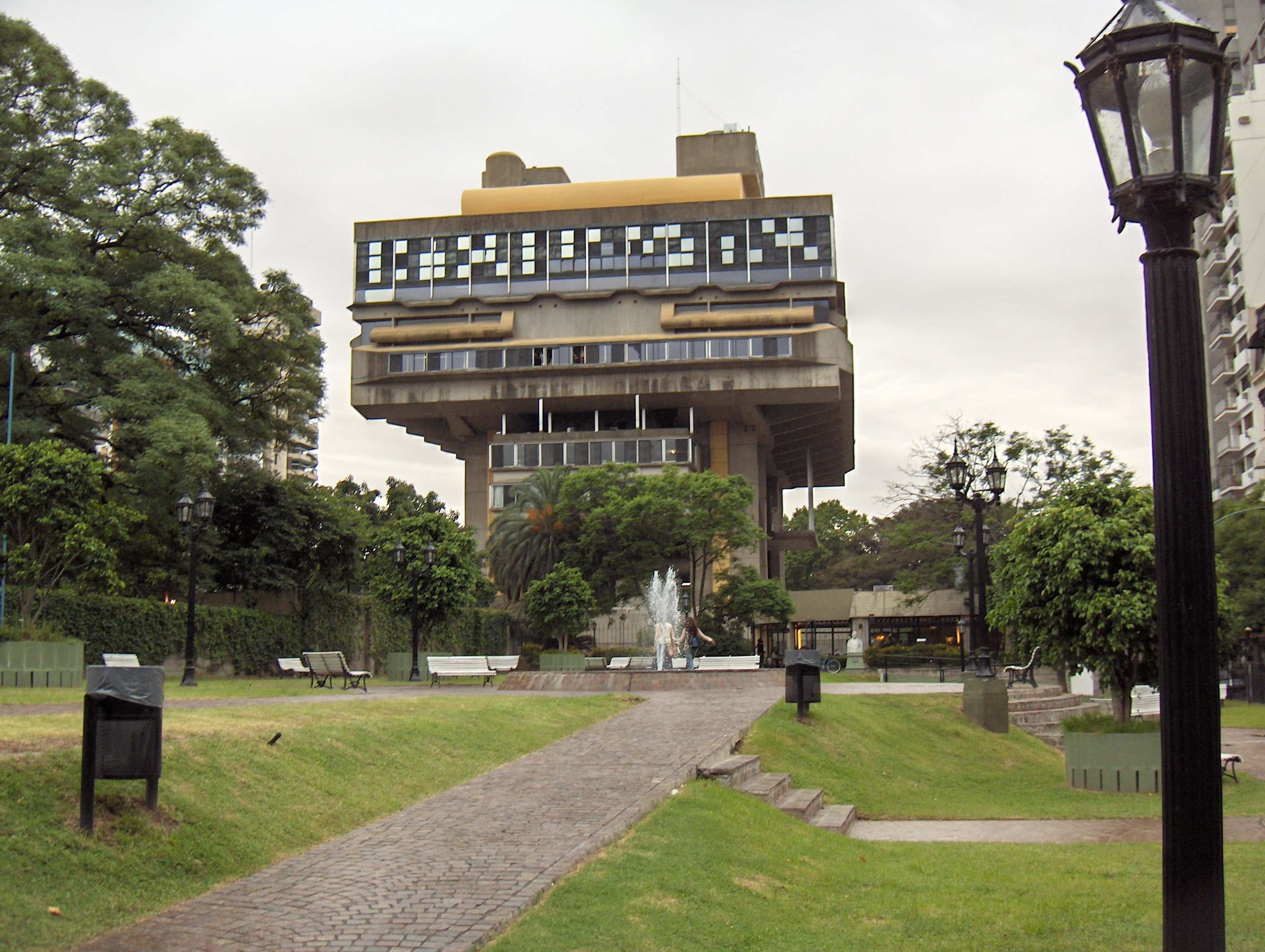I tend to pity the person who’s shackled with the perfect scorecard of privileges. Without poverty, ugliness, shoddy parenting, social isolation, deformity, handicap, ignorance, bad luck, or a general lack of opportunities, what can we blame for our failures. Advantage makes a person responsible for less-than-optimal outcomes, and what normal, self-respecting, other-blaming person wants to be held to that standard?
Big Hearts in Poverty
What do people typically seek from their professional lives? You may hear responses such as “fulfillment” or “autonomy,” “meaning” or “personal satisfaction.” More often than not, the response pays thought not only to an individual’s talents, but to a larger aim as well—to do good in the world. As if by nature, most of us harbor an aching desire to make a difference, to leave our communities a little bit better than we found them. While the will to exact positive change is evident in the hearts of people, there is a troubling lack of benevolent careers that pay enough for someone to survive and raise a family. Why is there such a discrepancy?
Like many of my peers, I dipped my toes into several professions after graduating from college. My most rewarding jobs included being a teacher, a freelance writer, and an addiction specialist, but the compensation for these positions was severely lacking. Many jobs that are absolutely essential to society pay pauper-wages, careers in fields such as education, social work, home care, medical assistance, childcare, small farming, construction, and more. This decreases the number of people who go into these important lines of work and makes our infrastructure more tenuous. Without those who provide our food, shelter, medicine, childcare, and schooling, our society would collapse into disorder and desperation. And yet they receive next to nothing for this essential labor, which causes many to turn to public services such as food stamps and General Assistance (GA). Locked into this grueling treadmill of poverty, these people burn out, become sick, and in turn, aren’t able to raise healthy families. The cycle continues.
I hit my breaking point working as an underpaid addition specialist for two years in San Francisco. I was the valedictorian of my high school and I’d graduated summa cum laude from Berkeley with degrees in psychology and sociology. I had other job options, but I’d wanted to give back to a community of people in need, to do the right thing. I had a caseload of over 50 clients with a high turnover of colleagues. It quickly became clear that I’d either need to marry into money—how passé for a self-sufficient, well-educated woman—or seek a better-paying career. I chose the latter.
In recent years, I doubled my salary when I became an SEO manager at an online marketing company. I wrote and edited online articles with the purpose of driving people to morally dubious, for-profit education clients, entities that have contributed to the explosion of student loan debt. I justified this to myself on the grounds that it was for education, so it couldn’t have been all bad, right? My desire to “make it” economically pulled the wool over my eyes and I felt spiritually bankrupt in the process. To my old company’s credit, they gave me free reign to create research-backed infographics that told the truth about wealth or gender inequalities, that explored careers in clean energy or medicine. These messages didn’t exactly align with the company’s desire to attract new students for client “diploma mills,” but they let me have my virtual soapbox to air all manner of issues important to me. For that, I am very thankful. They let me be me, even if I did get laid off one month after receiving a perfect performance review.
C’est la vie.
As a freelance writer, I still occasionally write articles for online marketing companies. Why? Because I love to write and I need to eat. These are the people who pay for my work. Plain and simple.
So why does our society offer such limited options for those with big hearts who don’t want to live in poverty? Are the astronomical salaries of defense contractors, corporate lawyers, investment bankers, lobbyists, and other ethically unsavory professions a reflection of our priorities as people, or is this simply a case of historical Wealth and Power protecting their elevated status, an ossification of the status quo?
I’ve seen evidence for both sides.
First, American priorities seem entirely out of whack. A handful of people in the U.S. have more wealth than the entire GDP of impoverished nations such as Sierra Leone, Ecuador, and Liberia. Our annual defense budget ($637 billion projected for 2015) is more than enough to feed and educate every child on earth, and yet our government callously fills the coffers of our defense contractors without addressing the real root of our nebulous War on Terror: a lack of access to opportunities in developing countries. Take care of basic needs for people, and the scourges of modern society seem to clear themselves up.
If we had a real interest in curbing violence around the world, we would have stopped building weapons which further escalate conflict and started investing in the hearts and minds of our purported enemies. This is not to neglect the countless non-profit organizations and other groups supporting infrastructural projects across the world. The issue is that a disproportionate share of the wealth is funneled into militaristic as opposed to humanistic ends. We should be paying people to do something better than shooting a gun. A majority of civilians on both sides of the conflict recognizes that building schools and providing basic services is better than building weapons or military bases, and yet we’re manipulated into believing that occupying other countries against their will is somehow for our protection and their benefit. It’s shameful.
We can’t continue pursuing the same militant strategies which have only fueled the flames of anti-Americanism in the Middle East and around the world. Our interest in other countries has been justified on the grounds of “freeing the people” from oppressive regimes or spreading democracy. It’s curious that we only pursue these “noble efforts” in countries that are of strategic interest to us for resources (e.g., oil reserves in the Middle East), corporate development (e.g., United Fruit Company in Central America), or otherwise. Where are our strides to end tyranny against the North Korean or the Nigerian regimes? The horrors of these countries are well-documented, but we do nothing. And then the American government goes and shakes hands with the oil-rich Saudi Princes, the leaders of a country where women still can’t drive and there are regular beheadings stemming from a misuse of Islamic law.
Another problem is that many Americans, likely exhausted from mind-numbing careers, seem to value entertainment above edification. We pay our actors, pop musicians, and athletes exorbitant sums for delighting us in the Coliseum of Mass Media while our schoolteachers and caretakers struggle to save for retirement.
There is ample evidence that American priorities are somewhat misguided, and it’s not entirely our fault. In fact, we’re behaving very rationally given the system into which we’re born: one where life’s meaning can be artificially constructed by the amassing of goods and power.
To that point, Wealth and Power have a history of safeguarding privileges for themselves and for their heirs. There are more millionaires in the Kangaroo Court of our country, the United States Congress, than ever before, and there are countless examples of people jumping between public service and private companies to bestow benefits on the other. Companies can pay for the election of representatives of their choosing, especially in the wake of Citizen’s United which enables businessmen to unleash unlimited campaign contributions. Our “public servants,” on the other hand, continue to pass legislation which protects incredibly low capital gains and corporate taxes for society’s most entitled people. There are some well-meaning politicians who strive to serve the larger public, but they are increasingly rare as Wealth becomes more and more politically prescriptive in the outcomes of elections.
So how do we change a society embroiled in political pseudo-conflicts, Republican versus Democrat, which always leaves the same wealthy entities in power? Grassroots movements such as Occupy Wall Street have the murmurings of creating change, but the lack of leadership in orchestrating demands extinguished the flames of revolt too quickly. What is the tipping point of a revolution? When will enough people stop watching the hypnotic shadows on cave walls and become privy to the real forces directing their lives?
Does the Cream Always Rise to the Top?
Writers of the past must have had some idea about the size and complexity of the world. Even Nietzsche, Montaigne, and Marx had opportunities to travel, to experience the delicious diversity of natural scenery, belief systems, and earthly pleasures. Did their reflections hold any external validity, or were they broadcasted simply because Western Europeans have a stranglehold over what we now deem to be “classic”? They no doubt had a powerful grasp of expression, but they were given leading roles in shaping epistemological history by virtue of privilege and tradition. How many true thinkers have been denied a voice due to less favorable circumstances? How many unsung philosophers labored over never-to-be published manuscripts, great works of art ignored, yellowed by time and finally reduced to dust in the cruel course of time?
Furthermore, the complexity about which I speak has never been more apparent, has never been more thought-shattering than it is today with our endless opportunities to virtually taste the wonders of existence. It’s impossible to feel the feeble rain in this ocean of possibilities. Montaigne possessed a sizable but limited library comprising the most monumental works up to his day. The collection may seem primitive and limited by modern standards, but at least it was finite. How does a modern person glean the gold from the silt in this baleful sea of information?
The Case for Reading Real Books

Last fall, I attended the 50th Annual Big Book Sale at the Fort Mason Center, and I realized why I’ve always been drawn to libraries and bookstores more than online writing.
First, the content contained between book or magazine covers is finite. We’re a captive audience in those pages and must move through the material in the image of the author’s intent rather than hopping between hyperlinks.
Second, there’s a significant cost to producing a book. While there are good books and not-so-good ones (e.g., Hillary Clinton’s recent autobiography), we can rest assured that some thought and meticulous editing went into the pieces due to the barriers to publication. There are exceptions, but I believe that most internet content is soulless pulp designed to garner attention. And by the way, the irony of presenting this argument online isn’t lost on me.
It costs virtually nothing to broadcast one’s thoughts across the web, and even though the ease of publication can hasten the spread of important news and assist social activism, it also enables people to publish a lot of crap at very little cost. It fits what George Saunders calls the “Braindead Microphone:” the meaner, louder, better-advertised material will make it to readers, regardless of the quality. Hence the success of sensationalist click-bait and listicles. Of course, hyperbolical headlines existed before the internet, but competition for people’s 140-character attention spans has made entertainment—rather than informing people—the primary objective in today’s media climate. There are entire companies that traffic in “content creation,” employing non-experts to chew up and spit out information from other sources, finally stamping the resulting detritus with a click-worthy title. These companies value efficiency, quantity, and readability above well-researched arguments or intellectual integrity. Believe me, I’ve worked for one of these companies.
Lastly, what better fodder for conversation than a beautiful, tangible collection of ideas through the ages? When I enter someone’s house, I’m immediately drawn to their bookshelves, which often tell more about a person’s constitution than an evening of conversation.
It is with these thoughts that I enjoyed perusing the scores of used books that were once loved by people, many likely had been lying fallow in garages for decades. I bought several 19th and 20th century classics, some editions published before the birth of my parents.
One gem I picked up for $3 was “Adventures of the Mind” from 1959. It contains several essays from the Saturday Evening Post by renowned thinkers such as J. Robert Oppenheimer, Aldous Huxley, Edith Hamilton, Arthur M. Schlesinger, Jr., and Bertrand Russell. You might think that these ideas were dated, but I was struck by the timelessness of their arguments and how concepts I’d once considered to be modern phenomena were the talk of the day fifty-six years ago.
For example, anthropologist Dr. Loren Eiseley wrote an essay titled “An Evolutionist Looks at Modern Man.” He discussed people’s obsession with technological progress at the expense of our humanity:
There are times when it appears man is so occupied with the world he is now creating that he has already lost a sense for what may be missing in his society.
In the 1950s, he expressed a sentiment which pervades our current fear of the diminishing human connection that accompanies sweeping technological change, particularly in the Bay Area.
In a similar vein, people today bemoan the loss of the humanities. Dr. Eiseley, again, had already taken note (and he likely wasn’t the first):
The humane tradition—arts, letters, philosophy, the social sciences—threatens to be ignored as unrealistic in what has become a technological race for survival.
I had believed naively that the erosion of the “humane tradition” was ushered in by computers more than anything else.
I wouldn’t have stumbled across this essay if I hadn’t gone to that Annual Big Book Sale. I propose that everyone give books and print media a shot. It’s easy to succumb to the allure of digital distractions, but there’s a comfort between the covers of a tried-and-true, physical read. All indicators show that reading actual books is on the decline, but then again, we’ve always been “in crisis” according to intelligent essayists throughout the ages. It’s appropriate to close with what I considered to be Dr. Eiseley’s most profound statement:
For a society without deep historical memory, the future ceases to exist and the present becomes a meaningless cacophony.
Doesn’t that mimic the frenetic feeling of our tech-driven lives echoed throughout countless modern publications? It certainly does for me.
Life’s Little Checklist

The day I turned 30, my wall calendar came into clearer focus. The monthly New Yorker cartoon stared back at me as always, but the angles seemed more acute and a sudden restlessness shook my soul. If I’m lucky, I thought, I might buy another 45 to 50 of these. I imagined the themes changing through the years according to my evolving tastes. I saw my wrinkled hand turning the page from October to November 2054, revealing a photo of my unborn grandchildren tossing leaves cavalierly in my unborn child’s front yard. Or perhaps by that point I’ll have turned to daily sudoku puzzles or obscure vocabulary words, to Bernese mountain puppies or gardening techniques. The point was that time suddenly seemed finite, and all the presences in my life, material or immaterial, were telling me to grow up. To chose a path. To complete Life’s Little Checklist of career, family, and property ownership obligations to ensure that my progeny could someday go through the same motions, on into perpetuity. Such is our sociobiological imperative, right? To make sure that our seed spreads and to leave some sort of legacy? Well I’m not taking the bait, and I urge others to question these assumptions as well.
What I realized is that so many of us are rushed hastily into careers, relationships, and other commitments which mean little to us. I’m a Millennial, and my generation is grappling with the disjunction between what we were taught and reality as it is. With respect to career prospects, my generation has the highest rates of student loan debt of any that preceded it. Part of that is the explosion in tuition rates, but I would argue that the greater problem is the belief that more education will necessary guarantee commensurate career opportunities. In this age of ever-increasing specialization, it’s difficult to find a perfect career for the over-educated doctoral candidate who knows everything about late 18th century spice trades or a single, obscure element of electromagnetic phenomena. There simply aren’t enough job opportunities for the most educated specialists, and many, often deeply in graduate debt, end up taking jobs only loosely related to their expertise, and many below their qualifications. A corresponding problem has risen with law school graduates, most of whom incurred tremendous debt with the promises of a handsome salary and are now wallowing in a market glut with their unemployed colleagues. The worst part is that many of my peers who attended graduate school did so in hopes of expanding their career prospects, but they weren’t necessarily in love with their disciplines.
In a similar vein, I’m witnessing the first round of divorces among my 30-something peers, many of whom entered into relationships for the wrong reasons. Some of them had been dating the same person for years and marriage simply seemed like the next logical step. Others married as a result of pressure from their families or religions who sought to make the arrangement more “stable.” Still others married for wealth or beauty, qualities that are mutable and provide shaky foundations for lifelong commitments. I’ve witnessed how some people seemed so eager to mark off this box on Life’s Little Checklist in the race against time. I know that I’ve been guilty of drawing out relationships longer than they needed to be, either out of consideration for the other person’s feelings or out of an ignorance of how much compromise is reasonable for two people to be together. Many have suffered (or are suffering) these relationships of convenience, of sex, of habit, of status, all to the detriment of individual lives and society as a whole. One day, the condom’s going to break (literally or figuratively), and I for one don’t want to be fucked.
Finally, I think there are countless dreams deferred which evaporate in the ether of time. People’s regrets on their deathbeds contain more inaction than action, more risk-aversion than risk-failure. What could be more important than living one’s life in the image of one’s dreams, removed from the confines of Life’s Little Checklist?
I was valedictorian of my high school class and graduated summa cum laude from Berkeley. Many of my peers went to graduate school or took high-paying positions in consulting or investment banking. By contrast, one week after graduation in 2006, I found myself buying a one-way ticket to London and landing a job as a waitress at Hard Rock Cafe. I later lived in Japan, Brazil, and traveled all over Southeast Asia, and I finally returned to live in San Francisco in 2010. I had very little money after traveling and living abroad for so long, so I secured yet another waitressing job, this time at a fancy restaurant, to pay my rent. Four months later, I took a pay cut to become an addiction specialist at a non-profit methadone clinic , believing this was in-line with my former aspirations and education as a double-major in psychology and sociology. After two years, I was on the brink of a mental breakdown due to the low pay, the high client caseload, and the concurrent collapse of my third failed romantic relationship since moving back to the Bay Area. I gathered my strength to make a dramatic career change: I’d wanted to become a professional writer, and the closest occupation I found was in SEO. Overnight, I doubled my salary, and for nearly two years, I was a managing editor at an online marketing company. I was relieved that I’d “caught up” to my peers who had been pursuing their careers while I’d been traveling the world, but the problem was that the life really wasn’t for me. I strayed, I resisted, I asked to work from home as many days as possible, and I was relieved to be laid off in July of this year. I’ve since relocated to Buenos Aires where I feel at peace with myself, and back on track with respect to what’s really important to me: writing, reading, and traveling.
That’s my story professionally in a paragraph. Now, whatever your spiritual predilections, we all know we’re going to be worm food someday. In the meantime, I urge everyone, young and old, to seek the space outside of social expectations so you don’t wake up one day and realize you’ve wasted your life chasing someone else’s dreams.
Little Green Man’s Guide to Human Civilization
CASENOTE #1: ENHANCEMENT OF THE FEMALE’S FEEDING VESICLES AND OTHER CURIOUS ASPECTS OF HUMAN ATTRACTION
Before establishing contact with the Humans, it is imperative that we gather as much information as possible about their social relations, leaders, recreational activities, and other characteristics we deem necessary to prepare ourselves for a range of outcomes as we strive to develop interplanetary relations and forge a peaceful exchange of knowledge, culture, and cookie recipes.
One of the most puzzling phenomena to date has been the methods by which Humans attract one another for mating purposes. The following observations are derived from a representative sample of 5 metropolises over the course of 1 Terra hour:
1A. Enhancements and reductions
The Smaller Sex (“Female”) sometimes sustains surgery to expand the size of its natural feeding vesicles (“breasts”). While the results may draw moderate attention from members of the Larger Sex (“Male”), I’m unable to determine a useful medical function for the cumbersome, dual sacks of saline solution. Some practicable purposes include:
- To improve buoyancy in large bodies of water
- To guarantee entry into exclusive nighttime gatherings (“clubs”)
- To prop up objects such as gossip magazines while in a position of repose
- To safeguard the Human from rolling off the bed in its sleep
- To create a counterweight to titanic buttocks for balance purposes
- To produce a convenient, fleshy slot for the safekeeping of cell phones and other valuables
Motivations notwithstanding, it is assumed that the inflation of these pendulous globules puts undue strain on the back and may impede the performance of daily activities such as driving, typing, and carrying one’s yoga mat. While further observation is needed to determine the utility of surgical procedures, other common, non-essential modifications were observed including changes to the nose (reduction), lips (enhancement), abdomen (reduction), and buttocks (results may vary).
1B. Hair
The Male displays ornamental tresses around the cheeks, upper lip, chin, neck, and chest. By contrast, the Female typically avoids growth in these areas and others, and may even trim or rip the hair from the upper lip, eyebrow, underarm, leg, and genital areas using blistering wax in established centers of torture (“beauty salons”). While redness, swelling, and discomfort are common, these practices are nearly universal for those of a breeding age. For the Male, the facial hair styles vary from wild and unkempt to a clean, naked visage. Without proper grooming, it’s been observed that the eating process can be impeded. It is unclear which style of presentation the Female prefers, although excessive hair along the upper lip (“mustache”) tends to incite either social admiration or tacit ridicule. Generally, the Female spends a significant amount of time maintaining its head-hair and displays a dizzying array of styles and colors. It is presumed that these decorative configurations attract the Male and vary in shape from a tidy, spherical gathering atop the head (“bun”) to an untamed arrangement resembling a toxic gas cloud (“frizz”).
1C. Teeth exposure
In the presence of other Humans, it is common to draw back the lips and reveal the teeth (“smile”). The appearance ranges from a glowing assembly of polished moonrocks to a rotting cacophony of sulfurous shards, the former being deemed considerably more attractive and associated with affluence. Teeth exposure is done with differing degrees of wrinkling around the eyes, and is often accompanied by short bursts of sound (“laughter”). The Female and the youth seem to engage in these practices more frequently, while the Male is more inclined to grunt, bellow, or scratch itself when engaged. It should be noted that the Male can be rewarded for eliciting teeth exposure in the Female with further contact, both social (“dates”) and physical (“sexy time”). Furthermore, the Female may extend its lips into a nursing position to increase their prominence and the subject’s purported sex appeal (“duckface”).
1D. Clothing
Humans generally cover parts of their bodies with clothing as it is deemed legally inappropriate to go without. While the amount of coverage has a -0.721 correlation with temperature, exceptions are noted. The Female in particular may opt for tight-fitting, cylindrical garments (“dresses”) exposing the extremities to the elements, and may rely on the extra clothing of the Male in times of need. Additionally, the Female frequently wears stilted footwear (“heels”) which hinders movement, but increases height considerably. I surmise that this is done to ward off predators, or perhaps to drum out unique mating calls on hard floors. The Female possesses the greatest abundance and variety of clothing, and is more likely than the Male to seek further acquisitions (“go shopping”). The Male, by contrast, sometimes wears decorative neck objects which require some assembly and range in shape from dangling, elongated diamonds (“ties”) to neater throat arrangements which resemble the silhouettes of distant satellites (“bowties”).
1E. Coupling
For short-term mating relations, the Female takes an array of variables into account such as conspicuous wealth, musical ability, or level of intoxication at time of first meeting. For long-term relations, the Female may create a list (mental or literal) of traits it holds to be relevant to finding a partner for life. Several conversations about said lists are observed and include words such as kind, perceptive, intelligent, intuitive, funny (i.e., ability to elicit teeth exposure), tall, strong, stylish, polite, independent, handsome, caring, clean, successful, sensitive, generous, etc. The length of these lists is inversely proportional to the age of the list-maker. I am unable to find evidence for similar lists on the part of the Male, who in considering both short- and long-term mating relations, appear to be relatively indiscriminate. As part of the initial stages of courtship, it is common for Humans to engage in a series of bodily contortions to the rhythm of music (“dancing”). The styles range from delicately refined avian movements (“ballet”) to sweaty, simulated acts of sexuality (‘freaking”). While the diversity of techniques is beyond the scope of this guide, a correlation is noted between a Human’s dancing ability and alcohol intake. Also, while it seems most common for the Male to pair with the Female, this is by no means the only arrangement. Either sex can pair with one of its own, although Humans from some areas frown upon this practice for unclear reasons. Other rarer mating phenomena of note include group gatherings (“orgies”) and interspecies relations (“beast-love”), particularly in agricultural regions.
ADDENDUM: While this is by no means a comprehensive analysis of attraction and mating in human civilization, it should suffice as a useful overview in preparation for establishing first contact. The more we understand in advance of our scheduled landing, the more likely we’ll be to enjoy a fruitful, mutually respectful relationship with the inhabitants of the Blue Planet, Home of the Best Cookies in the Galaxy.
Reaching For the Impossible: My Quest to Enter a Buenos Aires Public Library

I’m staring out of a filthy window of one of the top public libraries in Buenos Aires. The surrounding buildings and parks would be lovely, if only I could see them clearly. Years of industrial development and city pollution have created a greasy haze on the glass’s exterior, and it makes me nauseous if I look at this sadly distorted skyline for too long. Here I sit, resting my weary feet atop this grimy castle, and reflecting on how bleakly difficult it was to get in here.
It’s late spring, and the air is lushly humid. Puddles of refuse commingle with the thick scent of jasmine, and riding my bike for 20 minutes from my apartment in Belgrano feels like a triathlon. I’m thankful that the cheap chain on my secondhand “bici” only unhinges once on my journey to the southeast, although smears of black lubricant cover my inner right calve after my ancient steed leans against my sweaty leg at a traffic light.
Jon and I finally arrive at a tall, seemingly top-heavy that reminds me of the Geisel library on the UCSD campus, if that building had an older, dilapidated aunt that had smoked from birth. We get into the first floor and wait for the elevator for five minutes. Although I keep mopping up the moisture from my face, I feel like it’s dripping onto the cracked tiles beneath my feet, and it makes me self-conscious among the well-dressed students and young adults who seem unmiffed by the stifling heat.

We finally get to the 6th floor and are told that it’s only for students. Unfortunately I’d left my decade-old Berkeley ID in the states, so entrance to this floor was looking unlikely. The 5th floor, we were told, is where the gen pop (I use a prison term purposely) congregates.
We try to walk in, and are told that we must show our passports and register on the 1st floor before gaining admittance into this fortress of learning. I told the woman we didn’t have our passports, but I could show them copies if they had wireless internet, a feature common to even the lowliest cafes all over the city. “No señora, lo siento. No es posible. No tenemos internet aqui.” I used my intermediate Spanish to convince the woman to let us use our passport numbers and dates of birth which I did have handy, and 20 minutes after arrival we were ready to start working. Not so fast. We needed to empty our backpacks and put them into a locker before passing through security. We grabbed our laptops, locked up our empty backpacks, and took our registration slips to security to finally be let into the space. The guard stopped us, took our passport information, and asked for the type of computers we were using. She recorded all of this information, and finally we had gained entrance to… the library. We looked around this grim testament to the broken nature of Argentinian public facilities and noticed that there were no books, just rows and rows of students pouring over notebooks. It turns out that people can’t even check out books here. They are solely for use in the library, although Jon and I had trouble locating any books at all.
For me, this experience reflects a deep distrust of the Argentinian people on the part of the government. How can a nation expect economic, social, and other types of progress when all of the citizens are treated like children who can’t control their baser instincts? Who would want to go to the library to better oneself when the whole process is such a demeaning pain in the ass? Sure, there are a couple of thieves here and in every country across the globe, but does that fact trump the primary importance of access to an education?
This distrust of the citizens is reflected in other ways as well. It’s nearly impossible to receive packages from foreign countries. I’ve had to tell my friends and family not to send anything for Christmas because those boxes will get held up indefinitely in customs, a notoriously corrupt system where people are sometimes charged more than a package is worth in bullshit “import charges,” even for gifts.
Another example is the public statues and historical sites. There are some gorgeous fountains and other types of monuments which are surrounded by imposing, unfriendly fences, sometimes with security guards, and people are not allowed to get close to them. I can understand a fear of graffiti (and in Buenos Aires, there’s a lot of it), but letting the juvenile misgivings of a few egocentric teenagers ruin the accessibility for everyone is incomprehensible to me. Buildings can be repainted; statues can be scrubbed; sidewalks can be hosed down. A cage won’t stop the most nefarious people who have unshakable designs on defacing public property. So why make everyone else in a largely respectful, compassionate public feel like common criminals?
These systems and more are long broken in Argentina. Without an environment of stability, mutual trust, and communalism, the country will continue to sputter along in abysmal malfunction with a frustrated, fractured population.
What I’d like to imagine is the small but important step of treating public libraries as well as other facilities such as the city-owned Museum of Decorative Arts. It’s housed in the mansion of some early 20th century aristocrats. It’s well-kept and people are allowed to bring their backpacks inside without a prohibitive registration process, and this place houses works of art by Rodin, El Greco, Manet, Corbot, and others. If the lavish excesses of past generations are open to the public, surely we can ease up on (and even improve) the common person’s sanctuary of self-edification. I’d like to see more of these ancient, luxurious structures turned into libraries for the public. My guess is that the first asshole to pull out a can of spray paint would be stopped by citizens grateful for and protective of their beautiful bastion of learning. That’s the type of relationship we should have with our public institutions, if only the governments would give us a chance.
Smahrt Fones
Language has allowed us to transmit knowledge across generations, and is arguably the single most important factor in our progress as a species as we’re able to learn from the hard work (and mistakes) of our ancestors. What happens when we need not acquire wisdom, but rather rely on a lazy ability to manipulate an access tool? Our intelligence becomes dependent on something external to us – a computer – and is therefore vulnerable to being “out of service” or running out of battery power. Do deeper understandings of the world emerge from instant access to answers, or is labored and careful concentration central to increasing our intelligence?
The Problem With Old Faith
Oh, the shackles of tradition. Scholars are quarreling over an 8th century papyrus fragment which references Jesus’ wife and its implications for women’s role within the church. Why let our lives and societies be dictated by dusty proclamations? We don’t practice medicine or commerce by 8th century conventions, but rather we continually improve our efficacy. Shouldn’t morality be held to the same standard of testing, evaluation, and improvement?
Sober Reflections From Worm-Food-in-Waiting
Like a mosquito in the dark, I wrongly maintained that my life would make an impact. The scores of poetasters and young ballerinas that had danced before me learned quickly that dreams are, with rare exception, to remain unfulfilled. The optimism of youth stems from our comfortable grip around these illusions and the assumption that they would one day materialize. With age, more and more doors close and that painful, but inevitable realization sets in: we’re unimportant, uninteresting and doomed to be just like everybody else.


